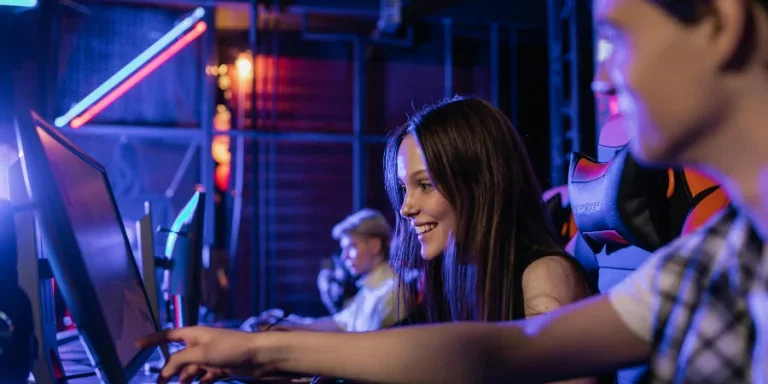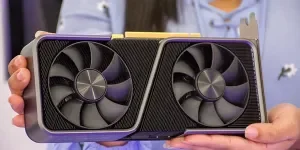As of 2024, the global gaming hardware market is valued at USD 165.56 billion and projected to reach USD 277.08 billion by 2030. This growth is fueled by rising eSports popularity and technological advancements.
Table of Contents:
– Market Overview of Custom Gaming PCs
– Detailed Market Analysis of Custom Gaming PCs
– Key Factors When Selecting Custom Gaming PCs
– Latest Technology Features in Custom Gaming PCs
– Maintenance and Upgrade Potential of Custom Gaming PCs
– Customer Support and After-Sales Service
– Final Thoughts
Market Overview of Custom Gaming PCs

The custom gaming PC market is experiencing robust growth, driven by the increasing demand for high-performance gaming hardware. In 2024, the global gaming hardware market, which includes custom gaming PCs, is valued at USD 165.56 billion and is projected to reach USD 277.08 billion by 2030, growing at a CAGR of 8.95%. The increasing popularity of eSports, higher disposable incomes, and the demand for immersive gaming experiences are significant drivers. Additionally, the market for PC accessories, including gaming peripherals, is expected to grow from USD 27.58 billion in 2024 to USD 48.9 billion by 2029 at a CAGR of 12.13%.
North America is leading the market due to high penetration rates of gaming consoles and PCs, technological innovations, and a strong presence of major manufacturers. The Asia-Pacific region, particularly China, India, and Japan, is also witnessing significant growth. The gaming industry in these countries is expanding, driven by local manufacturing and substantial investments in domestic brands. For instance, the revenue from gaming PCs and laptops in China is about USD 12.96 billion in 2024.
Detailed Market Analysis of Custom Gaming PCs
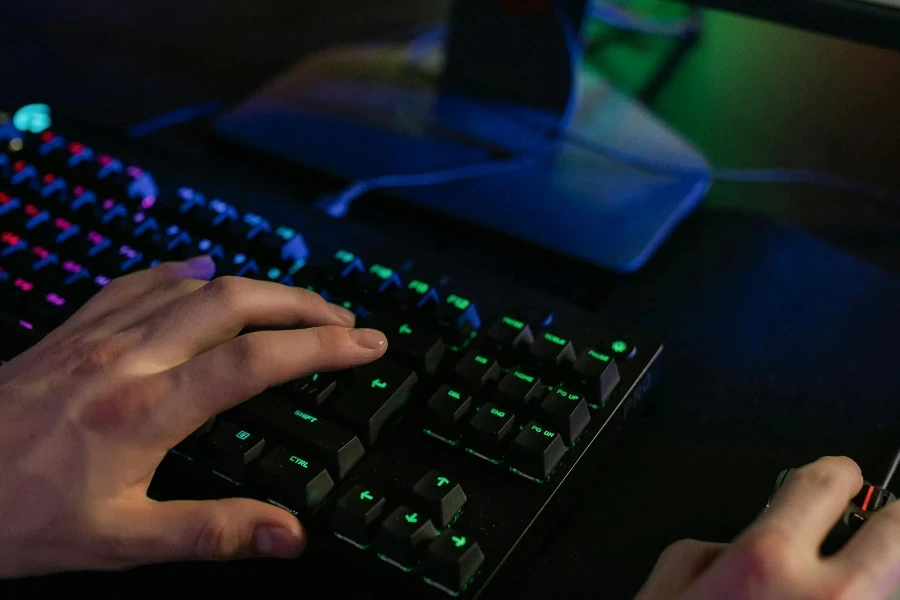
Key Performance Benchmarks and Market Share Dynamics
Custom gaming PCs are designed for high performance, with components like advanced processors, high-capacity RAM, and dedicated graphics cards. The market is segmented by product type, with gaming desktops being a significant segment. Desktops are preferred for their upgradeability and superior cooling solutions. There is also a growing demand for small form factor (SFF) PCs that balance size and performance.
Economic Influences and Consumer Behavior Shifts
The economic landscape significantly influences the custom gaming PC market. Rising disposable incomes and consumer spending on entertainment are boosting demand. The popularity of eSports and competitive gaming is driving the need for high-performance gaming PCs. Additionally, the trend towards remote work and learning has increased the demand for powerful PCs that can handle both work and gaming.
Seasonal Demand Patterns and Distribution Channel Preferences
Seasonal demand patterns are evident, with sales spikes during major gaming events and holiday seasons. Distribution channels are divided into online and offline, with offline channels dominating due to the preference for hands-on experience before purchase. However, online channels are growing rapidly, driven by convenience and the availability of a wide range of products.
Recent Innovations and Product Lifecycle Stages
Recent innovations in custom gaming PCs include advancements in VR and AR technology, high-refresh-rate displays, and RGB lighting. The product lifecycle of gaming PCs is influenced by rapid technological advancements, with regular updates to components like CPUs and GPUs. Manufacturers are focusing on creating modular and upgradeable systems to extend the lifecycle of their products.
Digitalization and Social Trends
Digitalization is reshaping the gaming industry, with increasing adoption of digital distribution platforms and online multiplayer gaming. Social trends, such as the rise of gaming influencers and streaming platforms, are also driving demand for high-performance gaming PCs. Customization options, such as personalized aesthetics and performance tuning, are becoming increasingly popular among gamers.
Environmental Regulations and Customer Pain Points
Environmental regulations are pushing manufacturers to adopt eco-friendly practices and materials. However, the high price of custom gaming PCs remains a significant pain point for consumers. Manufacturers are addressing this by offering financing options and focusing on building durable and upgradeable systems.
Brand Positioning and Differentiation Strategies
Leading brands in the custom gaming PC market, such as Alienware, MSI, and HP, are positioning themselves as providers of high-performance and reliable gaming systems. Differentiation strategies include offering exclusive features, superior build quality, and exceptional customer support. Collaborations with game developers and eSports organizations enhance brand visibility and credibility.
Niche Markets
Niche markets within the custom gaming PC segment include PCs tailored for VR and AR gaming, compact SFF systems for portability, and high-end systems for professional eSports athletes. These niche markets are driven by specific user needs and preferences, offering significant growth opportunities for manufacturers.
The custom gaming PC market is poised for significant growth, driven by technological advancements, rising disposable incomes, and the increasing popularity of eSports. Manufacturers are focusing on innovation, customization, and eco-friendly practices to capture market share and meet evolving consumer demands. As the market continues to expand, opportunities for growth in niche segments and emerging regions are substantial.
Key Factors When Selecting Custom Gaming PCs
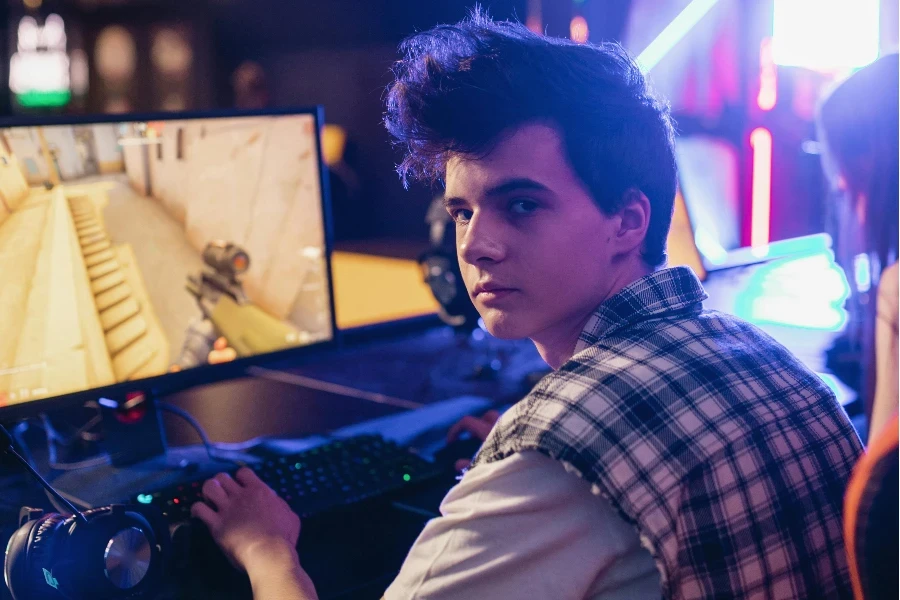
Performance and Technical Specifications
Performance is the cornerstone of any gaming PC, and custom builds allow for tailored specifications to meet individual gaming needs. When selecting components, the CPU and GPU are the primary drivers of performance.
CPU: For gaming, a high-performance CPU is essential. Popular choices include Intel’s Core i7 and i9 series or AMD’s Ryzen 7 and Ryzen 9 series. These CPUs offer high clock speeds and multiple cores, which are crucial for handling complex game physics and AI.
GPU: The graphics card is arguably the most important component for a gaming PC. NVIDIA’s RTX series (such as the RTX 3080 or 4090) and AMD’s Radeon RX series are top choices. These GPUs provide high frame rates and support for ray tracing and DLSS.
RAM: At least 16GB of RAM is recommended for gaming, though 32GB is preferable for future-proofing and smooth multitasking.
Storage: Solid State Drives (SSDs) are a must for quick game loading times. NVMe SSDs offer faster speeds compared to SATA SSDs. A combination of a 1TB SSD for the OS and frequently played games, along with a larger HDD for additional storage, is ideal.
Motherboard: Ensure the motherboard supports the chosen CPU and GPU, with sufficient PCIe slots for future upgrades. Features like WiFi 6, Bluetooth, and multiple USB ports are also beneficial.
Design and Aesthetics
The design and aesthetics of a custom gaming PC can significantly influence the overall gaming experience. Enthusiasts often prioritize a visually appealing setup with customizable RGB lighting and sleek case designs.
Case: Choose a case that not only looks good but also provides ample airflow and space for components. Popular options include mid-tower and full-tower cases from brands like NZXT, Corsair, and Cooler Master.
RGB Lighting: Many gamers opt for RGB lighting to personalize their rigs. Components like RAM, GPU, and case fans often come with RGB options that can be synchronized using software like Corsair iCUE or ASUS Aura Sync.
Cable Management: Good cable management is vital for both aesthetics and airflow. Modular power supplies can help keep cables organized and reduce clutter inside the case.
Build Quality and Materials
The durability and build quality of a custom gaming PC are crucial for long-term reliability. High-quality materials and components ensure that the system can withstand the rigors of intensive gaming sessions.
Chassis Material: Cases made from steel or aluminum offer better durability compared to plastic. Tempered glass side panels are also popular for showcasing internal components.
Cooling Solutions: Effective cooling is essential to maintain optimal performance. Options include air cooling with high-quality fans or liquid cooling systems. Brands like Noctua, Corsair, and NZXT provide reliable cooling solutions.
Power Supply: A reliable power supply unit (PSU) is critical. Choose a PSU with an 80 Plus certification (Bronze, Silver, Gold, or Platinum) to ensure energy efficiency and reliability.
Upgrade Potential and Compatibility
One of the key advantages of a custom gaming PC is the ability to upgrade components as technology advances. Ensuring compatibility and upgrade potential is essential for future-proofing your system.
Motherboard Compatibility: Select a motherboard that supports future CPU and GPU upgrades. Ensure it has sufficient RAM slots and PCIe lanes.
Modular Components: Modular components like the PSU and storage solutions allow for easier upgrades. Look for cases with tool-less design features for easy component swaps.
BIOS and Firmware Updates: Regular BIOS and firmware updates from manufacturers can extend the lifespan of your components and ensure compatibility with new hardware.
Customer Support and Warranty
Investing in a custom gaming PC often involves a significant financial outlay, making customer support and warranty policies crucial considerations.
Warranty: Ensure that all components come with a warranty, typically ranging from 1 to 5 years. Some manufacturers offer extended warranties for an additional cost.
Customer Support: Reliable customer support from manufacturers can be invaluable in troubleshooting issues. Look for brands known for their responsive and helpful support teams.
Return and Refund Policies: Understand the return and refund policies of the retailer or manufacturer. This can provide peace of mind in case of defective components or if the system does not meet expectations.
Latest Technology Features in Custom Gaming PCs
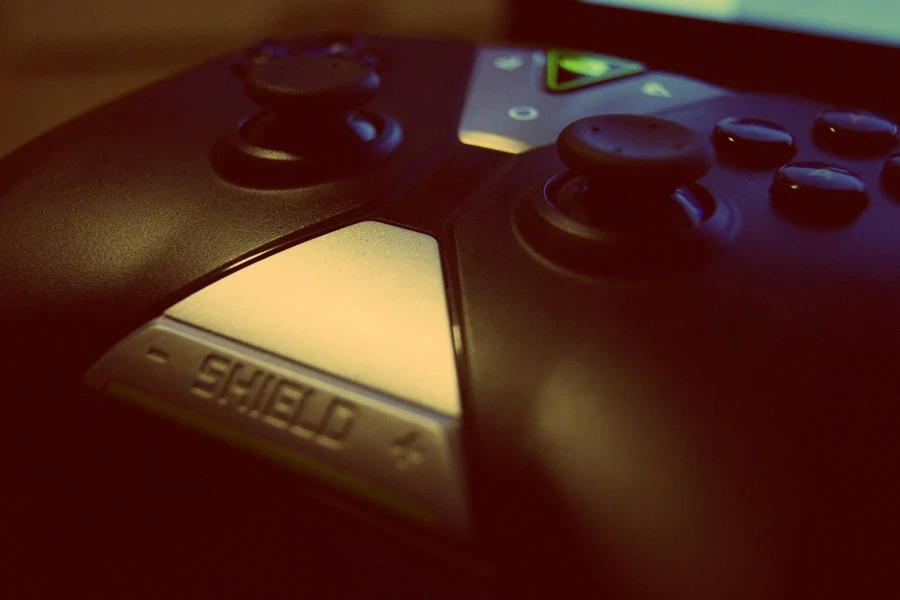
Ray Tracing and DLSS
Ray tracing and Deep Learning Super Sampling (DLSS) are cutting-edge technologies that enhance the visual fidelity and performance of modern games.
Ray Tracing: This technology simulates realistic lighting, shadows, and reflections, creating more immersive environments. NVIDIA’s RTX series and AMD’s RDNA 2 GPUs support ray tracing.
DLSS: NVIDIA’s DLSS uses AI to upscale lower resolution images, providing higher frame rates without compromising visual quality. This is particularly beneficial for 4K gaming.
High Refresh Rate Displays
High refresh rate monitors are essential for competitive gaming, providing smoother visuals and reducing input lag.
120Hz and Above: Monitors with refresh rates of 120Hz, 144Hz, and even 240Hz are now common. These displays offer smoother motion and are crucial for fast-paced games like first-person shooters.
G-Sync and FreeSync: These technologies synchronize the monitor’s refresh rate with the GPU’s frame rate, eliminating screen tearing and stuttering. G-Sync is compatible with NVIDIA GPUs, while FreeSync works with AMD GPUs.
Advanced Cooling Solutions
Keeping components cool is critical for maintaining performance and extending the lifespan of a gaming PC.
Liquid Cooling: All-in-one (AIO) liquid coolers offer superior cooling compared to traditional air coolers. Brands like Corsair and NZXT provide reliable AIO solutions.
Custom Loop Cooling: For enthusiasts, custom loop cooling offers the highest level of thermal management and aesthetics. This involves custom-designed water blocks, radiators, and reservoirs.
Maintenance and Upgrade Potential of Custom Gaming PCs

Regular Maintenance
Regular maintenance is essential to keep a custom gaming PC running smoothly and to extend its lifespan.
Cleaning: Dust accumulation can hinder airflow and cooling efficiency. Regularly clean the interior of the case, fans, and filters using compressed air.
Software Updates: Keep all drivers, BIOS, and firmware up to date to ensure compatibility and optimal performance. Use tools like NVIDIA GeForce Experience or AMD Radeon Software for GPU driver updates.
Thermal Paste Replacement: Over time, thermal paste can degrade, leading to higher temperatures. Replacing the thermal paste on the CPU and GPU can help maintain optimal thermal performance.
Upgrade Potential
The ability to upgrade components is a significant advantage of custom gaming PCs, allowing for incremental improvements as technology advances.
GPU Upgrades: As new GPUs are released, upgrading the graphics card can provide a substantial performance boost. Ensure that the PSU and case can accommodate the new GPU.
Storage Expansion: Adding additional SSDs or HDDs can increase storage capacity. Most motherboards support multiple storage devices, and cases often have extra drive bays.
RAM Upgrades: Increasing RAM capacity can improve performance in memory-intensive applications. Ensure that the new RAM is compatible with the existing modules and motherboard.
Customer Support and After-Sales Service

Warranty and Return Policies
Understanding the warranty and return policies of the components and the overall build is crucial for protecting your investment.
Component Warranties: Most components come with manufacturer warranties ranging from 1 to 5 years. Check the warranty terms for each component.
Return Policies: Retailers and manufacturers often have specific return policies. Ensure you understand the terms and conditions, including restocking fees and return periods.
Technical Support
Reliable technical support from manufacturers and retailers can be invaluable, especially for troubleshooting and resolving issues.
Manufacturer Support: Brands like ASUS, MSI, and Corsair are known for their robust customer support. Check for availability of support channels such as phone, email, and live chat.
Community Forums: Online forums and communities can be helpful for finding solutions to common issues. Websites like Reddit and Tom’s Hardware have active communities of enthusiasts and experts.
Final Thoughts
In summary, selecting and maintaining a custom gaming PC involves careful consideration of performance specifications, design, build quality, upgrade potential, and customer support. By focusing on these key factors, you can ensure a gaming rig that not only meets your current needs but is also future-proof and reliable.
